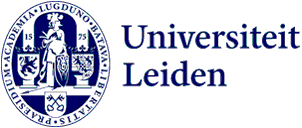
NWO-XS grants for two innovative research projects
Two Leiden Science researchers received an NWO-XS grant for their research. Both projects are highly promising, but also high-risk. Macrophages that trap bacteria and data storage made from 2D materials convinced the board of their potential.
The NWO Open Competition Domain Science funds curiosity-driven, fundamental research. The smaller-scale XS grants of 50,000 euros are intended for innovative and high-risk projects. 28 Proposals were awarded in this round, two of which are from Leiden researchers.

Semonti Bhattacharyya - Leiden Institute of Physics
Revolutionising data storage: creating the tiniest electrically-switchable magnetic memory.
As a human society, we have created an unprecedented amount of data. The ‘cloud’ might sound like these data do not require hardware to store them, but nothing could be further from the truth. Data centres are getting bigger and bigger, requiring enormous amounts of energy. Traditional magnetic memories have limitations in terms of size, speed, and energy consumption. With the grant, physicist Semonti Bhattacharyya will explore a visionary solution to this problem.
‘We are going to create an ultrathin magnetic memory with 2D materials. These are only a few atoms thick,’ explains Bhattacharyya. ‘Traditional magnetic memory has moving components, which we will be able to remove completely. That reduces the energy consumption as well.’ The particular way in which Bhattachyya plans to use 2D materials to create magnetic memory has never been tested. ‘We don’t know whether it will work, but I think it is worth a try. If it is successful, this might revolutionise data storage.’

Alireza Mashaghi Tabari - Leiden Academic Centre for Drug Research
Tighten the link: targeting inter-macrophage junctions to fight tuberculosis.
Mycobacterium tuberculosis (Mtb) is a bacterium that is responsible for causing nearly 1.5 million deaths each year. ‘Mechanics is a factor that has been overlooked in tuberculosis research’, Alireza Mashaghi Tabari states. ‘Macrophages construct a well-organized structure called granuloma to imprison the bacteria. These structures are certainly stabilized by mechanical adhesions between cells. Although this is quite logical, the mechanical interactions have not been investigated. We have technologies in our lab which are uniquely suited for such investigations.’
Mashaghi Tabari will explore various ways of strengthening inter-macrophage adhesion. ‘Our first approach will be to repurpose existing junction stabilizers including drug candidates we have been studying in the context of Ebola virus disease where adhesions between endothelial cells are lost.’ The mission of his lab is to bridge scientific disciplines to develop fundamentally new research directions. ‘We hope to address long-standing medical challenges, with an out-of-the-box approach. This grant is a very important support which allows us to do exactly this.’
The Open Competition Domain Science is a grant programme of the Dutch Research Council (NWO). Within this programme, researchers can submit proposals individually or in collaboration in the fields of earth sciences, astronomy, chemistry, computer science, life sciences, physics and mathematics. The XS grants are specifically designed to enable innovative and high-risk initiatives. The awardees receive 50.000 euros to conduct a one-year project.
